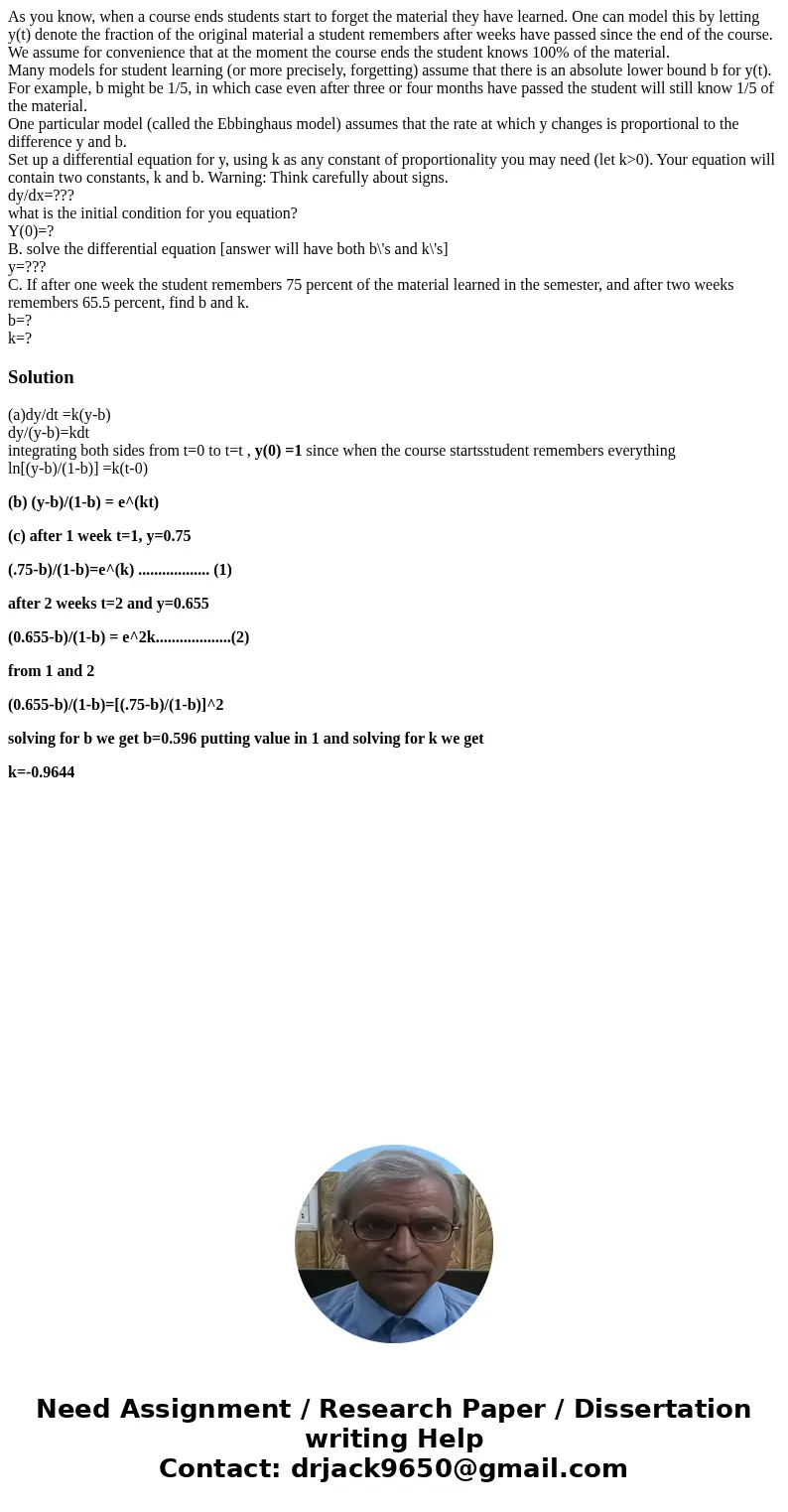As you know when a course ends students start to forget the
As you know, when a course ends students start to forget the material they have learned. One can model this by letting y(t) denote the fraction of the original material a student remembers after weeks have passed since the end of the course. We assume for convenience that at the moment the course ends the student knows 100% of the material.
Many models for student learning (or more precisely, forgetting) assume that there is an absolute lower bound b for y(t). For example, b might be 1/5, in which case even after three or four months have passed the student will still know 1/5 of the material.
One particular model (called the Ebbinghaus model) assumes that the rate at which y changes is proportional to the difference y and b.
Set up a differential equation for y, using k as any constant of proportionality you may need (let k>0). Your equation will contain two constants, k and b. Warning: Think carefully about signs.
dy/dx=???
what is the initial condition for you equation?
Y(0)=?
B. solve the differential equation [answer will have both b\'s and k\'s]
y=???
C. If after one week the student remembers 75 percent of the material learned in the semester, and after two weeks remembers 65.5 percent, find b and k.
b=?
k=?
Many models for student learning (or more precisely, forgetting) assume that there is an absolute lower bound b for y(t). For example, b might be 1/5, in which case even after three or four months have passed the student will still know 1/5 of the material.
One particular model (called the Ebbinghaus model) assumes that the rate at which y changes is proportional to the difference y and b.
Set up a differential equation for y, using k as any constant of proportionality you may need (let k>0). Your equation will contain two constants, k and b. Warning: Think carefully about signs.
dy/dx=???
what is the initial condition for you equation?
Y(0)=?
B. solve the differential equation [answer will have both b\'s and k\'s]
y=???
C. If after one week the student remembers 75 percent of the material learned in the semester, and after two weeks remembers 65.5 percent, find b and k.
b=?
k=?
Solution
(a)dy/dt =k(y-b)
dy/(y-b)=kdt
integrating both sides from t=0 to t=t , y(0) =1 since when the course startsstudent remembers everything
ln[(y-b)/(1-b)] =k(t-0)
(b) (y-b)/(1-b) = e^(kt)
(c) after 1 week t=1, y=0.75
(.75-b)/(1-b)=e^(k) .................. (1)
after 2 weeks t=2 and y=0.655
(0.655-b)/(1-b) = e^2k...................(2)
from 1 and 2
(0.655-b)/(1-b)=[(.75-b)/(1-b)]^2
solving for b we get b=0.596 putting value in 1 and solving for k we get
k=-0.9644

 Homework Sourse
Homework Sourse